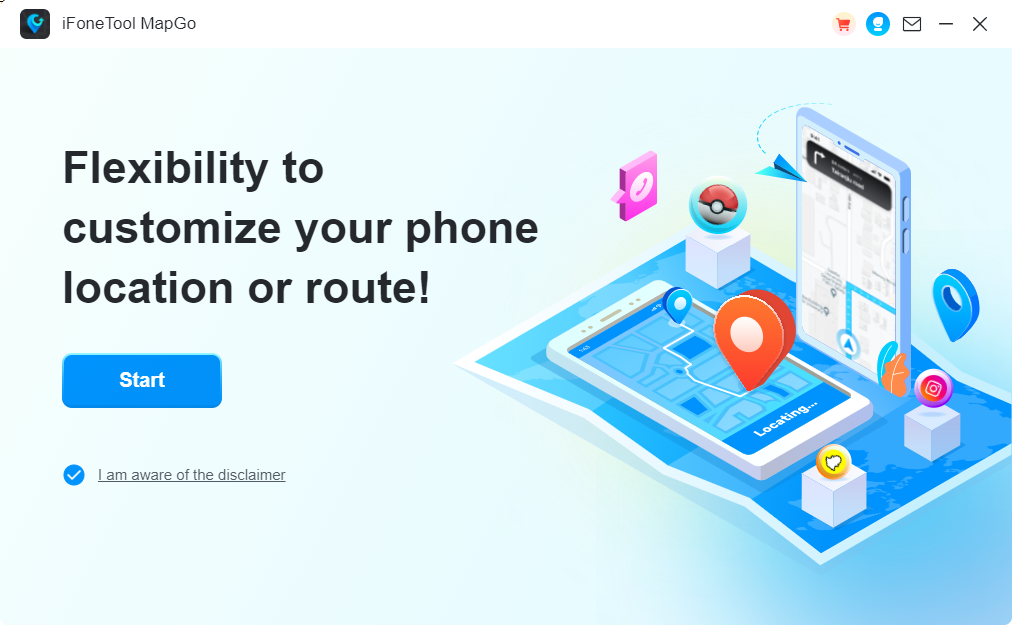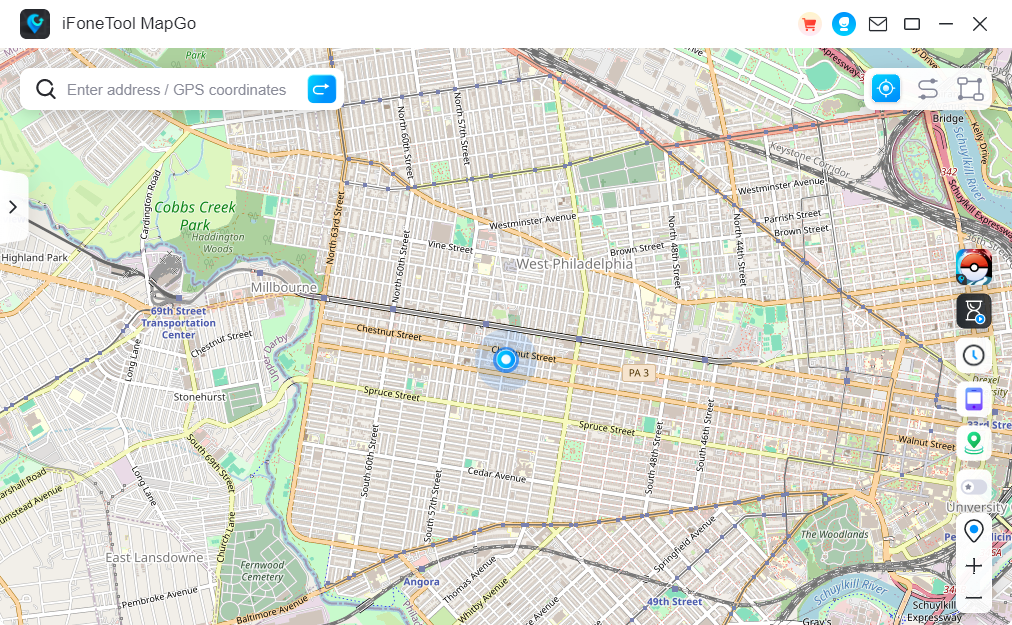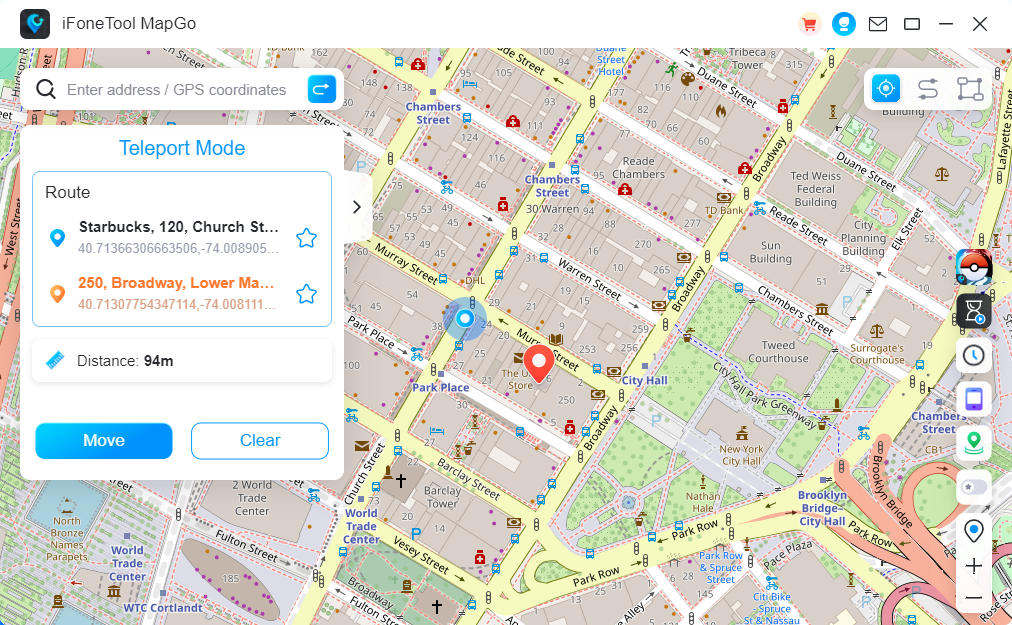Life360 is a popular family-tracking app that has gained millions of downloads worldwide. It offers real-time location sharing, location history, and geofencing alerts. Using this app, you can effectively track family members, especially teenagers, who may face risks like getting lost or being abducted.
However, many users have criticized the app for its potential for constant surveillance and control. Despite its popularity and positive Life360 reviews, concerns about privacy and security risks linked to sharing personal location data have intensified.
This article will explain why Life360 is bad and explain its negative aspects. We will also guide you on preventing it from tracking you or your loved ones secretly. Additionally, we will introduce a superior alternative solution that enables family connectivity without the potential harm associated with Life360.
Among the many Life360 reviews, you can find its many pros and cons. First, let’s talk about some advantages of Life360.
Advantages of Life360
Before discussing why Life360 is bad, let’s discuss some of its potential benefits. There are numerous Life360 reviews available as it offers a range of advantages for iOS and Android users. Here are the benefits you can expect from this app:
1. Coordinating Daily Activities with Family and Friends
Life360 is designed to enhance the connections and safety of families, partners, and friends. It lets you track someone traveling, receive notifications when a loved one needs assistance, and detect car crashes upon impact. It’s widely used for coordinating activities among millions of users worldwide.
2. Paid and Free Plans Available
Life360 provides the flexibility to choose between free and paid plans, allowing you to select what suits your budget and family safety requirements. Basic features are free, while the paid versions offer additional benefits like free towing, unlimited Place Alerts, stolen phone protection, stolen funds reimbursement, and more.
3. ETA Estimates and Place Alerts
You can access ETA estimates and Place Alerts regardless of your chosen plan. ETA estimates provide the estimated arrival time for members in your circle, allowing you to plan accordingly. Place Alerts notify you when a circle member enters or leaves a specific location. Free users can set up alerts for two places. On the other hand, paid users can set up an unlimited number of place alerts, providing even more information for tracking and planning.
Why Life360 is Bad?

Out of all the Life360 reviews, let’s discuss why Life360 is bad and how it can negatively affect you or your loved ones.
Invasion of Privacy
1. Privacy invasion by the location tracking feature
Life360’s location tracking feature may breach users’ privacy. It allows family members and friends to monitor a user’s live location. These locations may include their home, workplace, and other daily routine places. While this tracking feature aims to improve family safety and protect loved ones, it also threatens user privacy.
This feature can reveal sensitive details like a user’s home address and frequently visited places. Such information exposure could result in security threats like break-ins or theft. Users’ location data may also be exploited for advertising purposes, further violating their privacy.
2. Persistent monitoring of users’ personal information
The continuous monitoring feature in Life360 causes concerns among users regarding the constant scrutiny of their personal information. While this monitoring is voluntary and initiated by family members, users may start to question and express unease about being excessively monitored in their movements over time. It can undermine users’ privacy rights, leaving them feeling restricted and devoid of freedom and independence.
3. Impact on personal freedom and relationships
The privacy issues associated with Life360 can impact personal freedom and relationships. The app’s real-time location tracking and ongoing monitoring can make individuals feel confined and restricted, depriving them of the autonomy to make choices and decisions. This can result in a perception of repression and a loss of personal agency.
Disruption of Family Trust and Relationships
1. The tracking feature may cause trust issues among members
While Life360’s tracking feature aims to enhance the feeling of security among family members, it can also lead to a breakdown in trust. The continuous monitoring of each other’s movements within the family can be perceived as an intrusion of privacy, eroding trust. This can result in family members feeling suspicious and surveilled, leading to mistrust and dissatisfaction.
2. Limits the independence of children
In addition, the Life360 reviews show how ongoing monitoring by the app can curtail the independence of teenagers and young adults. Young individuals typically need the space to explore their identities and establish autonomy. Still, prolonged location tracking can deprive them of the ability to make independent decisions and limit their freedom of action. This can leave them feeling confined and untrusted, negatively impacting their personal growth and development.
Impact on Mental Health

1. Negative impact of continuous monitoring
The continuous monitoring aspect of Life360 can adversely affect mental and emotional well-being. To begin, the real-time location tracking feature of the app can induce anxiety and apprehension. Users may experience the pressure of constantly observing and restricting their movements. This ongoing surveillance can lead to unnecessary concerns, particularly when users fail to respond promptly, leading to worries from family or friends about their well-being. This unease and stress can have detrimental effects on their mental health.
2. Disruption of personal privacy and autonomy
The Life360 reviews also discuss how it can disrupt personal privacy and autonomy. While the app is intended to enhance family security and caregiving capabilities, it can also trespass on user privacy. Users may perceive themselves as constantly monitored, devoid of personal freedom and space. This perception can result in adverse emotional consequences, such as a feeling of confinement or anger.
3. Affect on individual’s self-esteem
The continuous monitoring enabled by Life360 can also negatively affect self-esteem. The constant surveillance may leave individuals with diminished autonomy, as their choices and actions may appear restricted. This can undermine their confidence in their abilities and self-worth, giving rise to feelings of insecurity and self-doubt. Individuals may become reliant on the approval and validation of others, thereby losing their capacity to think and act independently.
Dependency on Technology and Family Communication Problems
1. Excessive dependence on technology
Life360 can cause an excessive dependence on technology. Family members grow accustomed to using Life360 as their primary source of information for tracking each other’s locations. This overreliance on technology can make individuals less proficient in making independent decisions and taking autonomous actions. This may also reduce their interest in alternative communication and information-gathering forms. Such an unwarranted dependence can negatively affect personal skill development and competence.
2. Diminishes direct communication
Moreover, the presence of Life360 may limit the family member’s ability to engage in direct communication and establish boundaries. Family members might increasingly rely on Life360 for tracking, disregarding the importance of direct interpersonal communication. Direct contact is pivotal in building close relationships, resolving issues, and comprehending each other’s needs. Consequently, an overreliance on Life360 can result in reduced communication among family members, hampering problem-solving and emotional exchange.
False Sense of Security
While the app provides a certain level of convenience and peace of mind, it may not offer comprehensive safety measures, leading to a false perception of protection. Here are some key points to consider:
1. Limited Scope of Protection
Life360 primarily focuses on tracking the location of individuals, providing updates and notifications based on GPS data. While this can be useful in certain situations, it does not encompass all aspects of safety. Factors such as personal well-being, emergency response, and communication during critical situations may not be adequately addressed by location tracking alone. For instance, a person might be physically present at a location but still face other risks or threats.
2. Device Reliance and Limitations
Life360 relies on the availability and proper functioning of smartphones or other compatible devices. In situations where devices are lost, damaged, or not carried by individuals, the effectiveness of the app’s safety features is compromised. Additionally, technical issues, battery drain, or connectivity problems can hinder the real-time accuracy of location data. Dependence on a single app for safety can be risky when faced with such technological limitations.
3. Safety Beyond Location Tracking
Comprehensive safety measures involve more than just tracking physical location. It is essential to consider other aspects such as personal well-being, emergency preparedness, and effective communication. Encouraging open dialogue about safety concerns, educating individuals on general safety practices, and maintaining an emergency plan can contribute to a more holistic approach to safety.
How to Stop Life360 from Tracking You Without Knowing?
![]()
Now that you’ve understood why Life360 is bad, you may wonder how to stop it. A location spoofing tool can come to your aid, and we recommend iFoneTool MapGo. This tool effectively mimics your phone’s GPS location, whether an iPhone or Android. It makes your location appear as if you are in an entirely different place.
With iFoneTool MapGo, you can use location-based apps like AR games, social platforms, and more. It will help you to simulate GPS movement with a customized route for free. You can also save your favorite routes by importing/exporting GPX files.
Step 1: Download and install the iFoneTool MapGo on your computer. Open MapGo and click the Start button.

Step 2: Connect your phone to your computer by USB, and then you will see your location on the map.

Step 3: Click the location you want to go on the map or enter where you’d like to go on the top left. And then click “Move”.

Now you can get a new fake location! It will also be updated in your Life360 Map!
Alternative Approaches to Safety: Beyond Life360
While Life360 and similar location tracking apps provide a sense of security for families, there are alternative methods to ensure safety and maintain peace of mind that don’t rely solely on constant location tracking.
1. Open Communication
Encourage open and honest communication within your family or group. Establish an environment where individuals feel comfortable discussing their whereabouts, plans, and concerns with each other. Regularly check in and share updates voluntarily, fostering a culture of trust and mutual understanding.
2. Mutual Trust
Building trust is crucial for maintaining safety and peace of mind. Focus on developing trust among family members by respecting each other’s privacy, boundaries, and personal autonomy. Trusting individuals to make responsible decisions and communicate when necessary can go a long way in creating a sense of security.
3. Emergency Preparedness
Instead of solely relying on location tracking, prioritize emergency preparedness. Develop and practice emergency plans, including protocols for various situations such as natural disasters, accidents, or personal emergencies. Educate family members about safety measures, first aid, and how to respond in critical situations.
4. Personal Safety Education
Promote personal safety education within your family or group. Teach members about general safety practices, self-defense techniques, and situational awareness. Encourage them to be mindful of their surroundings, make informed decisions, and trust their instincts when it comes to their well-being.
5. Geographical Familiarity
Encourage individuals to become familiar with the areas they frequent, such as their neighborhoods, schools, or workplaces. Understanding the local environment, knowing emergency exits, and being aware of nearby resources can contribute to a greater sense of personal safety.
6. Digital Well-being Practices
Promote responsible digital habits to ensure online safety. Educate family members about privacy settings, safe internet browsing, and the importance of protecting personal information online. Encourage open discussions about online risks, cyberbullying, and appropriate social media usage.
7. Location Sharing with Consent
If location sharing is still desired, consider using location sharing features with consent. Opt for apps or services that allow individuals to share their location voluntarily and on their terms. This ensures that privacy and personal boundaries are respected, while still allowing for occasional location updates when needed.
8. Regular Check-ins
Implement a system of regular check-ins among family members. Set designated times or methods for individuals to inform each other about their well-being and whereabouts. This can provide peace of mind without the need for constant location tracking.
By adopting these alternative approaches, you can maintain safety and peace of mind within your family or group without relying solely on location tracking apps like Life360. Remember, a comprehensive approach to safety goes beyond location tracking.
Conclusion
In summary, while Life360 may be considered a valuable tool for families to keep tabs on their loved ones, Life360 reviews discuss substantial criticism for its encroachment on privacy. We outlined the reasons behind why Life360 is bad, as well as its potential benefits.
The application’s capacity to excessively monitor family members can lead to trust issues and create a feeling of constant surveillance and control. Tracking apps can create a false sense of security, reinforce harmful stereotypes, and hinder children’s development of responsibility and independence.
If you find the idea of being tracked by Life360 unsettling, using a location-spoofing tool like iFoneTool MapGo offers an effective solution. Using MapGo, you can block Life360 from monitoring your movements without your consent.

